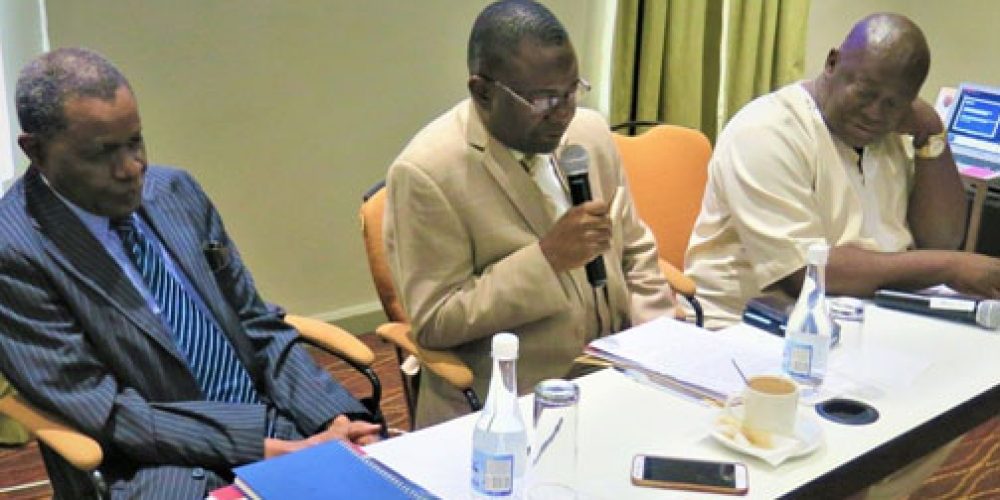For those charged with helping their countries both adapt to and combat climate change, understanding and being able to leverage climate information is critical. This is particularly true for Sierra Leone, recognized as the third most vulnerable country in the world to the effects of climate change.
Thus, WA BiCC and Sierra Leone’s Ministry of the Environment were pleased to jointly organize a training workshop in Freetown February 24–27 on climate information for the country’s National Adaptation Plan (NAP) process.
While climate change will likely affect various types of communities in Sierra Leone, this workshop focused on increasing the resilience of coastal communities to climate change. Workshop participants were drawn from government ministries, departments, and agencies; non-governmental organizations; and civil society groups involved in the NAP or related adaptation planning processes, with a focus on coastal adaptation. The training included presentations on climate change information, technical capacity building around climate mechanisms, and hands-on exercises on evaluating climate information presented in other national documents supporting adaptation. It was conducted by Dr. Sylwia Trazaska, a Climate Scientist at the Center for International Earth Science Information Network, housed within the Earth Institute of Columbia University in New York.
To Sierra Leone’s Minister of the Environment, this training could not have come at a better time.
“We as a government are grateful to WA BiCC for supporting this great, important and timely training workshop, as Sierra Leone is among the vulnerable countries to the impact of climate change, causing biodiversity and habitat loss, coastal erosion, reduction of our fresh water sources and severity of disasters such as mudslides and bush fires.”
Abdul Bah, Senior Environment Officer at the Environment Protection Agency, said the training served as a capacity-building session for national actors involved in the development of the country’s NAP to address climate change. He also said it closes the gaps that exist within institutions in terms of accessing relevant documents on climate information.
The training is in line with a host of activities Anada Tiega, WA BiCC’s Coastal Resilience and Adaptation Specialist, has worked on to increase the capacity of WA BiCC’s target countries to generate, access, interpret and effectively use climate information for climate change adaptation planning. Other activities include a review of the NAP process and the extent to which the countries of Togo, Ghana, Cote d’Ivoire, Liberia, Sierra Leone and Guinea have integrated coastal issues into their NAPs; a regional technical workshop titled “Integrating Coastal Issues into NAP: Sharing Lessons and Opportunities”; and helping Sierra Leone to develop and launch the country’s Climate Change Adaptation Plan.





